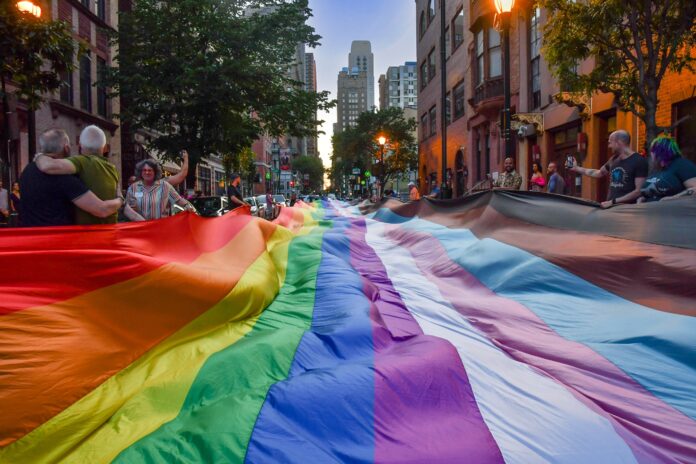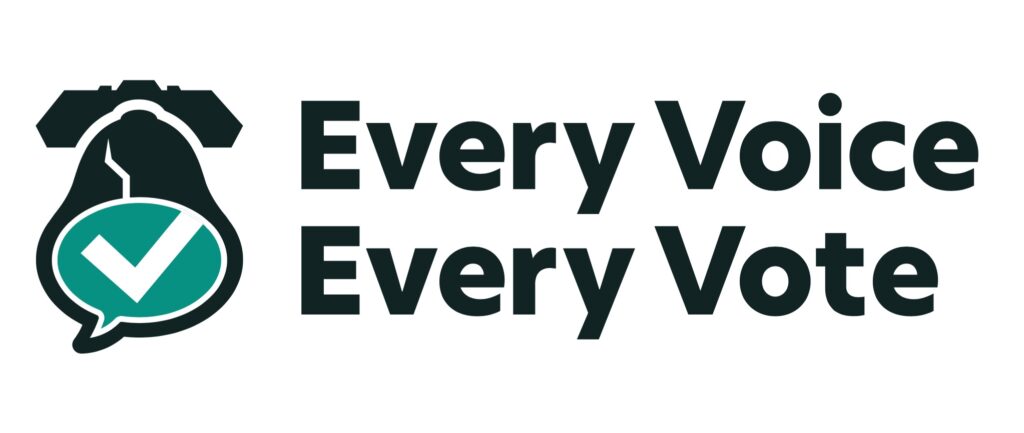
“There’s so many things happening now — and I think what we need to do as a community is educate ourselves and be informed of what’s going on because it’s changing almost every day,” said Mary Evelyn Torres, executive director of Action Wellness, during a town hall meeting at William Way LGBT Community Center on April 10.
“What I’m asking you to do is step up,” she underlined. “I’m stepping up, not only as an executive director but as an individual.”
Torres underlined the importance of thinking through an intersectional lens when LGBTQ+ people consider the impacts of executive orders on marginalized people. She encouraged people to vote, put pressure on their legislative representatives, and take to the streets — reminding attendees that Ryan White HIV/AIDS Bureau, a federally-funded program that helps people access HIV/AIDS healthcare and support services, only exists because people protested and insisted that the government pay better attention to the crisis.
“We have to stay together — because a threat against one of us is a threat against all of us,” she emphasized, noting the need to support trans people and immigrants — who have been most significantly impacted by executive orders. “We gotta hang together, the community — because united, we will get it done. We’ve done it before. We’re going to do it again.”
About 125 LGBTQ+ community members, activists and policymakers gathered to hear Torres and various other keynote speakers representing advocacy groups and LGBTQ+ agencies across the city, who discussed issues affecting the queer community, offered insights about the challenges organizations are facing, and spoke about what leaders are doing to continue to work on behalf of the queer community.
Tyrell Brown — who is currently executive director of Galaei and will be the next executive director of Philadelphia’s Office of LGBTQ+ Affairs — spoke at the event, which was organized by Celena Morrison-McLean, the office’s former executive director.
“Pride will happen on June 1 by hook or by crook,” Brown emphasized during their keynote speech — which highlighted the festival’s importance as a resource fair for the community
They also discussed Galaei’s services and offerings — including job-seeking support for trans women, SOGI staff training, housing navigation, and various other programs which have existed for multiple years. Hazel Edwards — Galaei’s director of programs — also announced a new opportunity called Twist, an intervention program designed for and by trans women. The four-part workshop series will focus on gender affirmation, building social support networks, recognizing healthy and unhealthy relationships, self-advocacy, sexual health and self-care.
“Trans liberation is not just about acceptance,” she underlined. “It’s about economic power, financial security — generational wealth in community.”
Ciora Thomas, executive director of SisTers PGH — a Black, trans-led organization based in Pittsburgh, spoke about the need to collaborate statewide. SisTers PHL — an emerging affiliate of SisTers PGH, is launching a new transitional housing initiative for Black, trans women in Philadelphia. She said SisTers PGH has successfully moved marginalized people into more sustainable and permanent housing — including homeownership — and she hopes to bring this model to Philadelphia. SisTers PHL is starting by providing rent and utility support and emergency housing.
“As we build SisTers PHL, I’m looking forward to joining forces with Philly orgs and groups who get it, who understand the urgency, who’ve done the work, and who are ready for the fight — not just here but all across Pennsylvania,” she said. “Because this is bigger than any one org. This is about our collective liberation across the state.”
She and other leaders spoke about the need to call people into opportunities to heal grudges or pursue restorative justice where tangible harm has occurred. This, she underlined, makes the LGBTQ+ community stronger in the midst of queerphobic attacks.
“You’ve got to be on your own journey of identifying what needs to be healed in you, so you can contribute to the healing of others,” she emphasized.
“Instead of working against each other and fighting for the resources, now we really need to learn how we can put our resources together to improve our services and our reach for our community,” said Darius McLean, chief operating officer of William Way, about the need for organizations to collaborate moving forward.
McLean spoke about the center’s well-known and robust programs for LGBTQ+ seniors, arts and culture initiatives, and the Trans Resource Center (which offers microgrants). He emphasized that peer counseling is available by phone every weeknight from 6 to 9 p.m. and that in-person walk-in sessions are available Monday through Thursday. He also announced that the grocery distribution program has expanded. Free high-quality groceries (including produce and organic options) were previously only available for seniors, but they’re now for anyone.
Jacen Bowman, vice president of Philly Black Pride, spoke about the organization’s recent expansions and the upcoming annual celebration which will begin on April 23. Although the organization is known for this big event, Bowman underlined that they’re active throughout the year too — with civic and mobilization efforts, community gatherings, and new offerings of self defense and expungement trainings.
Jasper Liem, executive director of The Attic Youth Center, highlighted that working with young people involves both long-term and short-term goal-setting. It’s “What’s going on; how do we support you? And also, how do we set you up for success?” To ensure that kids understand what’s happening in the U.S. right now, The Attic has held explainer events with partner organizations — like the ACLU — while also helping them focus on what’s joyful in their lives.
Speakers continually emphasized the need for human connection. The event served as a space to introduce community members to LGBTQ+ leaders and as an opportunity to get to know real people who can become tangible resources when questions or concerns arise. About a dozen organizations tabled in the lobby of the community center, offering information about services.
The event also included a panel discussion about the steps LGBTQ+ people can take to get information, protect themselves, and attempt to stay well. Panelists Kae Greenberg of the Center for HIV Law and Policy, Dr. Vicky Borgia of Radiance Medical Group, Dr. Noel B. Ramirez of Mango Tree Counseling, BK Katzmann and Elizabeth Lilly from law firm Ballard Spahr, and Sappho Fulton of Womxn Beyond Borders spoke about their areas of expertise.
Katzmann gave practical advice about travel and personal documents — underlining that state laws and federal laws are not one in the same and that Pennsylvanians are afforded multiple protections regarding IDs and personal documents, even as REAL ID takes effect. They noted the importance of ensuring people look like the photos on their identification, even if the gender marker or name does not align.
Fulton noted that a new housing initiative is launching for previously incarcerated trans women, a desperate need for that population. She spoke about the need to hold institutions accountable for disparities in access to resources but also for LGBTQ+ people to create their own sustainable paths toward helping one another.
“I have been astounded every day by my patients — who are activists, who are queer people, who look out for each other all the time, right?” Borgia said. “So we live in a community. We have always lived in community. Queer people are great at doing mutual aid. It’s in our DNA. We’ve done it forever, and we can continue to do it.”
“We know in our heart of hearts how to make community, how to do mutual aid, and how to find each other when we need it,” she continued. “And we’re going to continue to do that and we’ll save ourselves.”
